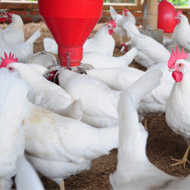
New protection zone introduced to Cumbria and Lancashire
Measures put in place to reduce the spread of Avian Influenza will lift as planned across most of England today (15 May), the chief veterinary officer has confirmed. However, the measures will remain in place in targeted areas of Lancashire, Cumbria and Merseyside following evidence of heightened risk in these areas.
Defra’s latest risk assessment shows that the overall risk in England has not increased, but there is a heightened risk in parts of Cumbria, Lancashire and Merseyside. Recent cases in backyard flocks suggest that infection is still either circulating in wild birds or present in the environment.
A new targeted Avian Influenza Protection Zone (AIPZ) has been introduced to minimise the risk of disease spreading in this area. The AIPZ covers the districts of Barrow-in-Furness, South Lakeland, Lancaster, Blackpool, Wyre, Fylde, Preston, Sefton, West Lancashire, South Ribble and Chorley.
Poultry keepers in the AIPZ zone are required to observe existing disease prevention measures, such as minimising movement in and out of bird enclosures, cleaning footwear, keeping areas where birds live clean and tidy and feeding birds indoors.
Defra states that the ban on poultry gatherings in the localised AIPZ area will continue, and keepers from the area will not be able to take their poultry to gatherings elsewhere.
An AIPZ requiring keepers to observe strict disease prevention measures and a ban on poultry gatherings have been in place across England since December 2016.
From today (15 May 2017), keepers across most of England will no longer be required by law to follow these measures. They should continue to follow industry standard best practice on biosecurity, including minimising movement in and out of bird enclosures, cleaning footwear, keeping areas where birds live clean and tidy and feeding birds indoors.
Poultry gatherings can resume in all areas outside the remaining AIPZ, but poultry from the affected districts of Lancashire, Cumbria and Merseyside will not be able to attend.



 The BSAVA has opened submissions for the BSAVA Clinical Research Abstracts 2026.
The BSAVA has opened submissions for the BSAVA Clinical Research Abstracts 2026.